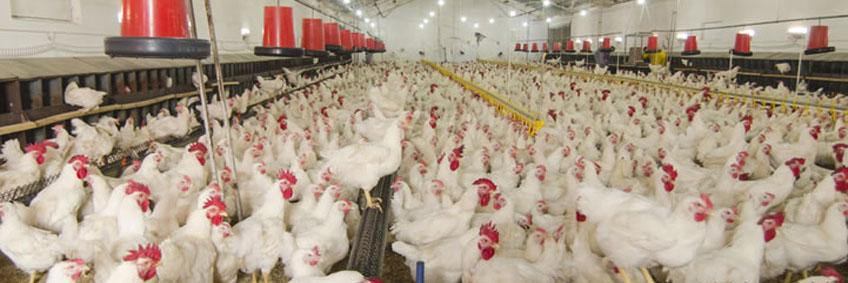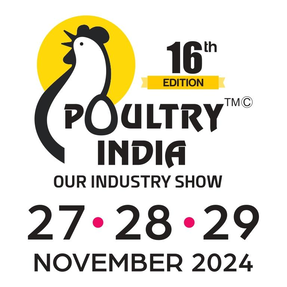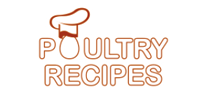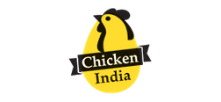What it takes to keep your poultry farm disease-free

- New birds should be day-old chicks as old birds are likely to be carriers. If you have to introduce any bird or birds’ into the farm, ensure that there is an isolation unit far as possible from the resident birds.
- Ensure there are no dams near the poultry house as this attracts water birds.
- There should be a footbath at the entrance of every poultry house that all visitors should dip their foot wear.
- It is also important to note that healthy birds that are free from stress will develop an active immune system that protects them from diseases.
Biosecurity is a management practice designed to prevent entry of diseases into a farm, and limit spread. It is an essential element to a good animal husbandry process.
It is the cheapest and most-effective method of disease control. Biosecurity ensures that the health and well being of your birds are protected hence improving the immunity and performance of your flock.
It is important that every poultry farmer checks if their biosecurity plans are strong enough to keep out diseases. Infectious diseases are introduced on farms through:
• Introducing diseased or carrier birds.
• Visitors’ and farmers clothing, shoes and vehicles
• Poor disposal of dead birds’ carcasses and litter
• Contaminated drinking water provided to the birds
• Rodents and wild birds
• Egg transmission
• Contaminated feeds and feeding equipment
• Farmer’s pets
• Airborne infections
For an effective biosecurity plan, there are three aspects that should be considered: Isolation, Human traffic control and sanitation.
Isolation
This is done through confining the birds in a controlled environment and keeping all other animals out. This is achieved through:
• Construction of fences,
• Practising all-in-all-out poultry management. That is birds are kept as a flock from day-old chicks till they are slaughtered. After slaughter, the house is washed, disinfected and rested for at least two weeks to ensure that pathogens are killed before introducing any new flock.
New birds should be day-old chicks as old birds are likely to be carriers. If you have to introduce any bird or birds’ into the farm, ensure that there is an isolation unit far as possible from the resident birds: These new birds should be isolated for 2-4 weeks; during this period the birds will be observed for signs of diseases and treated if any is seen.
Farmers should handle the new birds last after all the others. Ensure you obtain new birds from a reliable source.
• Keeping birds of same species and age group together: Some birds are resistant or carriers of diseases that are harmful to other birds of a different species.
• Keeping rodents and wild birds away: Rodents spread diseases into the farm through their droppings or secretions.
They are kept out through placing wire nets and avoiding spillage of feeds outside the poultry house. Also ensure there are no dams near the poultry house as this attracts water birds.
FREE FROM STRESS
Clear the surroundings of bushes and shrubs as these provide hiding areas for rodents and other wild animals.
Human traffic control
Humans are the biggest threat to spread of diseases. Humans transfer diseases through their clothing, shoes, hands, equipment and vehicles. Every farmer should control the number of people that come into the farm.
Sanitation
The poultry house should be kept clean to ensure that there is no spread of diseases. Chicken litter should be dry at all times as wet and dirty litter predisposes the birds to coccidiosis among other infections.
Visitors should have their cars disinfected and their shoes too at the entrance to the farm. Everyone should wash their hands with a disinfectant and wear protective clothing - a dust coat and gumboots before they enter into the poultry house.
There should be a footbath at the entrance of every poultry house that all visitors should dip their foot wear. All farmers should disinfect their hands, shoes and clothing especially after being in direct contact with other livestock and family pets.
There are different disinfecting products that can be used by farmers: Phenols, Hypochlorites, Quaternary ammonium, Formalin and Chlorohexidine among others.
It is important to seek advice from a veterinarian on which sanitiser is best suited for your production needs.
The other important way to prevent entry of diseases into the farms is through vaccinations. Vaccines aid in providing your birds with a strong immune system that is able to resist infections.
Never vaccinate sick birds; vaccines are only meant for prevention and not treatment.
Always keep records as this is an essential tool in ensuring good biosecurity measures have been attained.
It is also important to note that healthy birds that are free from stress will develop an active immune system that protects them from diseases.
Stress free birds’ are those that are not kept in crowded environments, are fed on a balanced diet with ample clean drinking water and are free from fear and anxiety.
Source: https://www.nation.co.ke/









.jpg)



